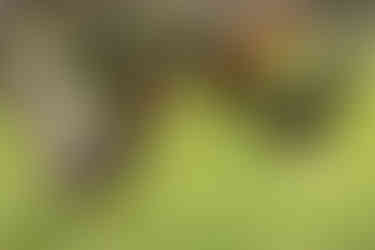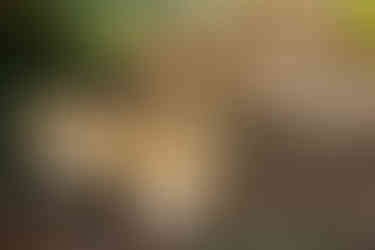Franchesca Duval of Alchemist Farm: A family run hatchery working towards a better future
- Jun 18, 2021
- 11 min read
Updated: Jul 5, 2021

FRANCHESCA DUVAL
Owner of Alchemist Farm in Sebastopol, California
I’m excited to invite you to my conversation with Franchesca Duval, the environmentalist and backyard poultry farmer behind Alchemist Farm. Franchesca’s love of chickens began at a young age. After planting roots on three acres of land, she realized her dream of having her own backyard flock. When she started researching the best hatcheries to get chicks from she was horrified to learn the standard practice of killing all the male chicks. In response, Franchesca decided to build her own humane hatchery, offering birds with wonderful temperaments and beautiful eggs. She started with an incubator in a bathtub and in under a decade has built a successful nationally recognized hatchery business.
For Franchesca, her sustainable small business journey hasn’t been focused on financial success, her primary goal is to make a positive impact in the world. I so appreciate the zero waste and creative environmental solutions Franchesca has applied to every aspect of her home life and business. She is constantly improving and making adjustments to be a more mindful consumer and encouraging and teaching others to do the same.

Franchesca's respect for the planet and all of the creatures that live here is so refreshing. Chickens are arguably the most abused animal on our planet and Franchesca is dreaming up revolutionary ways to change the industry for the better. I encourage you to support her efforts and follow her on Instagram @alchemistfarm. If you are interested in learning more about chicken keeping you can take an online workshop with Franchesca and you can also order chicks and eggs on their website.
We visited Franchesca and toured Alchemist Farm in January of 2020. We have included a bunch of photos from our time there and additional interview questions that she responded to before the pandemic.
Franchesca is powerful agent of change and I so look forward to seeing how she continues to inspire others to follow a path towards sustainability, zero waste and greater self-reliance.
FRANCHESCA'S ADDITIONAL INTERVIEW RESPONSES
What inspired you to move to the country?
Having the ability to live a self sustaining lifestyle and having ample space to work with animals in a humane a holistic way.
Initially what was the hardest part about making the move? What challenges came later?
Being off of city water and working with our own well and filtration proved to be the largest challenge. We have water that comes out of the ground looking like orange mud because it is so full of iron. We have a special settling tank and filtration system that removes the iron to make clean drinking water without the use of chemicals. We have to closely monitor our water but it makes us more grateful for the clean water we have and it keeps us motivated on the water conservation front, which we all should be anyways! :)
Did you research a lot of potential locations before you moved?
Yes! We looked at hundreds of pieces of land before we found this one. When this farm popped up it was on the market for three days and had seven offers put in on it. When we first stepped onto the land we knew right away it was our home because of all of the other places we had walked and looked at. The land spoke to us and we listened. We wrote a letter to the owners explaining how we would use the land and raise our family there. The letter made an impression and our offer was accepted.
Why did you choose Sebastopol to settle in and grow your business?
We appreciate the culture here. There are deep agricultural roots in Sonoma County and there is an emphasis on supporting farmers who are growing clean food. The climate is mild, the school systems are good and when natural disasters hit (fires, floods) the community comes together to house and feed one another.
Can you recommend any books, online tutorials, podcasts, etc. that have helped educate and inspire you in your transition into farming?
Honestly, it was a lot of personal trial and error to see what made sense for our families rhythm, and how the land wanted to be used. Books can take you to a certain place but then it is about putting your hands in the soil and getting the practical hands on knowledge. Out of the head and into the heart and hands is the phrase that comes to mind. I always knew I wanted to have chickens here but never did I imagine we would be a full scale hatchery. Everyday we pray for guidance and to be shown the next steps. Listening to the land and Gods direction has been the best teacher we could hope for. Resources, teachers and information landed in our lap that we would not have found if we had searched it out on our own.
Tell us about your aha moment when you realized that a hatchery was the direction you wanted your business to go?
After purchasing a round of chicks from a large scale hatchery many years ago I did some research into their practices and found out that they kill almost all of the male chicks that hatch because most folks only want hens. The idea made me sick to my stomach and on a soul level I knew I could not support that. I wanted to continue to have chickens so I needed to find another way of getting chicks. One bit of research led to another and I ordered an incubator and fertile hatching eggs.
I wanted to offer an alternative for folks who felt the same way I did about that practice of killing male chicks. I setup a system where we donated all of our male chicks that hatched to local impoverished families who raised them for food. Every year we saw more issues that needed to be addressed with running a hatchery and every year we tackled them with open hearts. We are now a humane hatchery that keeps all of our chickens on rotating pasture, free from breeding cages. We run on 100% clean renewable energy and our shipments are 100% plastic free. Every shipping box comes with information on how to compost the materials and gives a little introduction on how to cut down on household waste going into the landfill.
What started as an effort to be humane has now turned into a whole new way of looking at and raising animals in an ecologically responsible way. The birds have taken us on a powerful journey and want their story to be told, we are grateful to be able to share them with the world.
What do you appreciate most about the life you are building here?
We get to listen to the land with open hearts and translate what nature is saying into words for other folks. We thought we were doing one thing with our hatchery but in reality we are now ecological stewards and advocates for positive change. These changes are changes that we all know we need to make but are not sure how to make them, the chickens are fantastic guides to a more simple waste free lifestyle, they take us on a powerful journey.
Our children are free to roam and get to learn about farm chores and the rhythm of planting seeds in a garden and eating with the seasons. We spend more time outside than inside and it feels like a healthy way for our children to get to grow up.
What advice would you give to someone thinking of moving out of the city?
Do it! When you find your piece of land that calls to you, know that you have all of the time of the world to make renovations and plant your garden. Start small and make your life adjustments in a sustainable and manageable way so they feel fun and your victories can be celebrated. Once you have successfully planted those few raised beds and feel confident in what you are doing you can add a few more. Once you have raised a few chickens and find that you enjoy the process than raise a few more and grow your dreams one solid block at a time.
How did your friends and family respond to your plans of starting Alchemist Farm?
My sister saw what I was up to right away, she was able to hold the vision with me when other friends and family were not to sure what we were up to. She helped me build our website, create a logo, business cards and celebrated every victory while listening to every challenge along the way. She was a powerful force of support along with my husband who patiently built along side of me and listened to more information about chickens than he ever thought he would be subjected to!
How has your business changed and grown since its inception?
We have grown in every way. See the answer to the “aha moment” above :)
Where do you draw your inspiration and passion from for your work?
Honestly, through prayer. Everyday I wake up and ask for guidance on how I can be used to best care for Gods creation. Every step of the way I am shown the direction we need to go and I listen. We have been given a beautiful planet and right now there are a lot of issues it faces. Chickens, while looking humble and simple can do a lot of ecological good if used properly. They can turn kitchen and food scraps from our homes into protein, diverting hundreds of thousands of pounds of food from the landfill. They provide fertilizer and if composted properly can make some amazing soil for gardens - they allow us to close to loop on our protein and food sources. They give so much with so little input!
If you could time machine back to the early stages of building your farm business, what advice would you give yourself?
Spend the time and money to automate as much as possible on the food/water front. Setting up proper systems in the beginning allows for more time to be spent refining and tinkering to make the animals comfortable. Comfortable birds stay healthy and give maximum amounts of eggs. Time can be spent listening to and enjoying them as opposed to doing the baseline of tending to them. We now have large gravity fed 55 gallon drum waterers which are a life saver. Using small 5 gallons plastic waterers was a great bandaid in the beginning but it became expensive in time to maintain and expensive ecologically when every year they would break from UV damage.
Now with every purchase and new infrastructure we put in we think about the long game.
How did you/do you overcome any feelings of uncertainty and fear when it comes to making decisions and taking risks?
This is such a great question and one I have spent many years of my life answering. I was born with the personality that caused me to give up if I could not do something perfectly. The result of that was paralysis by analysis, I would sit and think about doing something for so long that the moment would pass, I was so afraid of making “the wrong decision”. These days I have learned that the only bad decision is not making one. If I go in a direction with the farm and it proves to not be useful I can always change course. The ticket seems to be in continuing to move forward as best as possible.
Another powerful shift was no longer making decisions solely from my mind, I check in with my heart in every customer service and business decision I make - if it feels correct I move forward. If there is something that is nagging at me I slow down and investigate. The heart leads the show these days!
How important has your local community been to the growth and success of your business?
We have a few ways that we bring in income at our farm. The first is through sales of hatching eggs and baby chicks that are both picked up and shipped nation wide, the second is chicken and quail keeping classes and the third is quail eggs for eating. The quail eggs for eating is supported solely from local restaurants and grocery stores and without them we would not be able to continue our quail breeding projects so they were/are very important to our quail keeping success. There is no doubt that being situated in a community that taps into its old farming roots and celebrates local cleanly raised food gave us a boost in the beginning. Now that the farm has expanded and we have a strong social media presence and following a large portion of our chick sales are from shipments out of state.
What techniques and channels have proven the most successful in marketing to new customers and growing your business?
Instagram and facebook for sure! We have had the honor of being published in print magazines such as Sunset Magazine, Acreage Life, Hobby Farms, Made Local as well as a few local newspapers. That kind of coverage is such a treat but the main boost in our ability to reach folks nationwide has come from social media.
I have a natural desire to help educate and offer information to people. That paired with the beautiful photos of eggs and birds we work with allow folks to find us and get inspired to follow along and interact with us.
Have you been able to build a good community here?
In Sonoma County? Yes! We are slowly being recognized for the work we are doing around reducing farm waste, going plastic free and focusing on humane treatment of our animals. We are invited to speak on farming panels to help inspire new generations of farmers. It is an honor to give grassroots information back to the community so that we can all become more knowledgable and stronger. We donate A LOT of hatching eggs to class rooms and always donate to fundraisers. Our local community sees that and appreciates that we are giving back so they do what they can to continue to support us - it is a beautiful circle.
Do you notice a trend of young people leaving city life behind? If yes, why do you think that is?
The pendulum always swings. I notice collage aged folks yearning for connection to land that they did not grow up with. I also see them wanting to let go of the modern conveniences that distract them from being able to fully interact with the world around them in a healthy way. In an age filled with screens we find that rates of depression and anxiety are higher than ever. It is the reconnection to the soil and slower paced meaningful rhythms of caring for animals that are our saving grace, young folks are recognizing that and it is a beautiful thing to witness.
What is your favorite place on your farm to retreat to when you’ve had a challenging day?
We have a handful of ancient oaks and sycamore trees on our land, whenever I have some decisions to make I like to walk out and stand near them while listening to the breeze in their leaves and branches. Their age and steadfastness always remind me that whatever I am thinking about will most likely be forgotten in a few months time and I just take a deep breath and give-up whatever was bothering me as best I can.
What are some common misperceptions about life in the country?
I grew up with the idea that farming and county life were for folks who were uneducated that had no other choice. How wrong I was! Everyday presents a new set of mental exercises in how to problem solve whatever is before us. Be it working with heat or cold times of year, power outages, neighborly relations or trying to give the garden the exact things it needs to grow as best it can. Hours and years of research and time go into fully understanding a piece of land, it is like a marriage and it is beautiful.
What do you want people to know/understand about life in small communities?
Maintaining healthy relations with neighbors is a priceless thing and worth investing time in. If a natural disaster comes your way, your neighbors will come together to check on one another. I have always leaned into being as generous as I can with folks in our neighborhood and immediate community - be it with my time, resources or information. Folks recognize kindness and it is appreciated.
What are your future plans/goals for the coming year?
Ah! There are always many things that we are working towards. Each year we work to better our ecological impact on the world while offering up some amazing birds for folks to raise in their backyards and on their farms. At the end of 2019 we joined the 1% For The Planet foundation and we are really looking forward to donating a portion of our proceeds to The Children’s Eternal Rainforest in 2020. Their story is incredible and a fantastic example of how a few small people with large hearts can have a giant positive impact.
We are bringing back a breed of chicken that we love and have been working to stabilize genetically. The Swedish Isbar, they lay green eggs that sometimes have purple speckles on them, they are the sweetest of birds. Getting to protect and share heritage breeds of poultry that deserve to continue to thrive feels like a powerful way to add to our planets biodiversity and maintain food security for local communities. The more varied breeds of chicken out there the more secure we are if some super bug comes and wipes out the larger poultry industries pearl leghorn population.





















































The lol beans game provides players with the chance to engage with a community of fans of this enjoyable game. This community allows players to share their accomplishments, uncover thrilling races, and share humorous and entertaining moments.
I loved reading about Franchesca's journey with Alchemist Farm! It's inspiring to see her dedication to ethical farming. By the way, when sharing stories like this on social media, using a bold text online tool can help highlight key points and grab attention easily.
What an inspiring story! It's admirable how Franchesca Duval combines her passion for animals with sustainable and ethical practices, proving that a family business Geometry Dash can have a real positive impact on the world. Her conscious and creative approach truly makes a difference.
Kaiser OTC benefits provide members with discounts on over-the-counter medications, vitamins, and health essentials, promoting better health management and cost-effective wellness solutions.
Obituaries near me help you find recent death notices, providing information about funeral services, memorials, and tributes for loved ones in your area.
is traveluro legit? Many users have had mixed experiences with the platform, so it's important to read reviews and verify deals before booking.